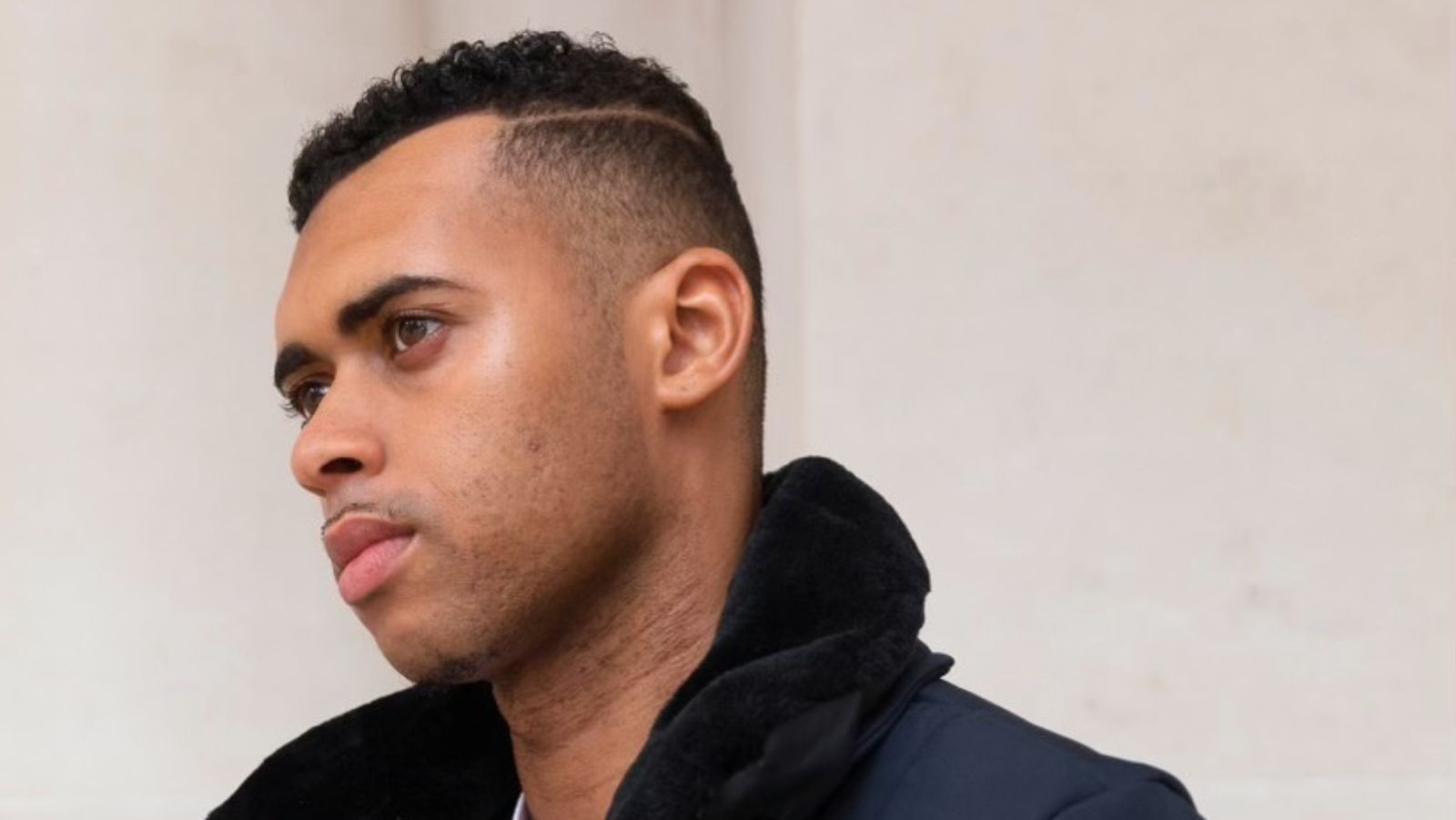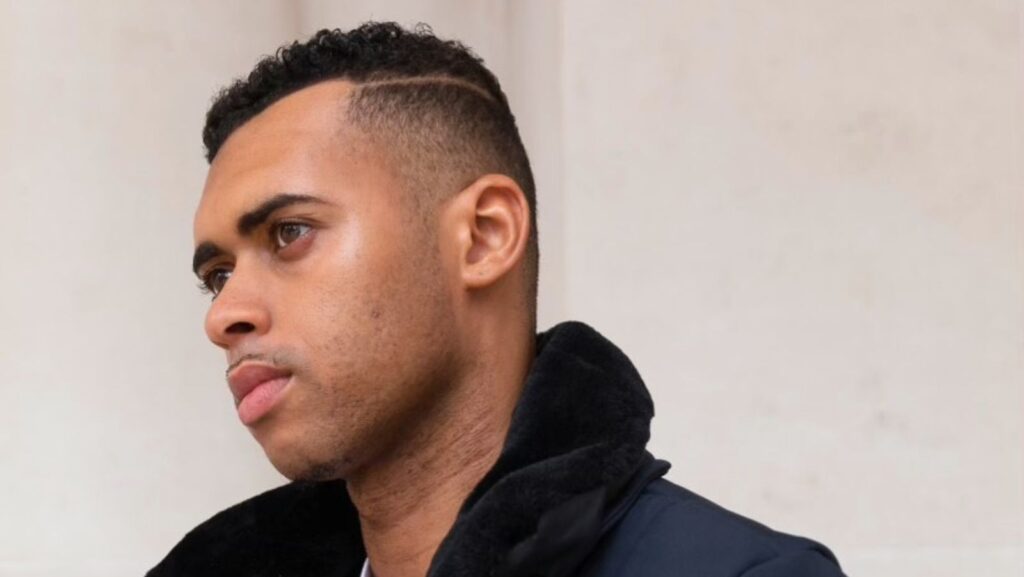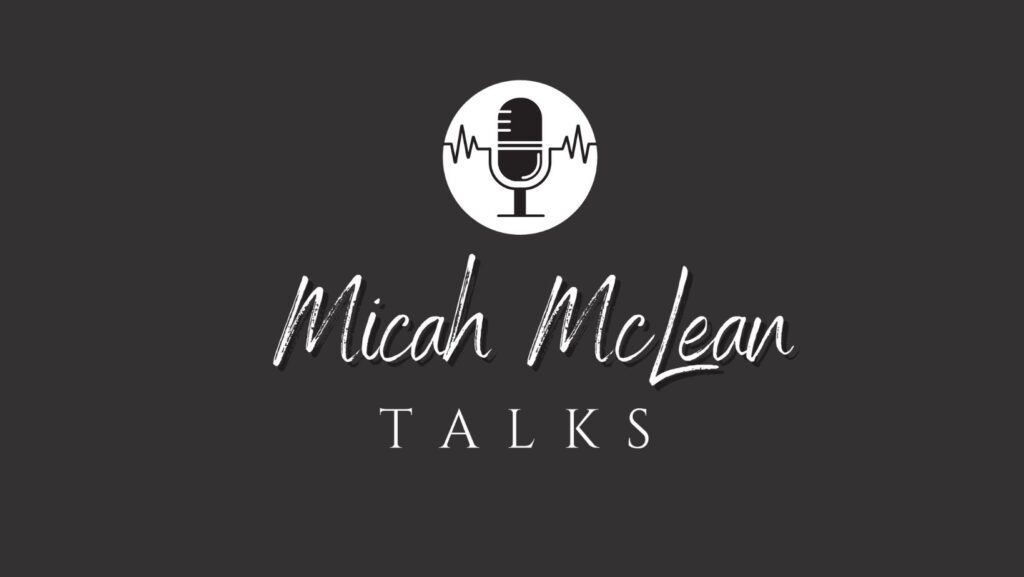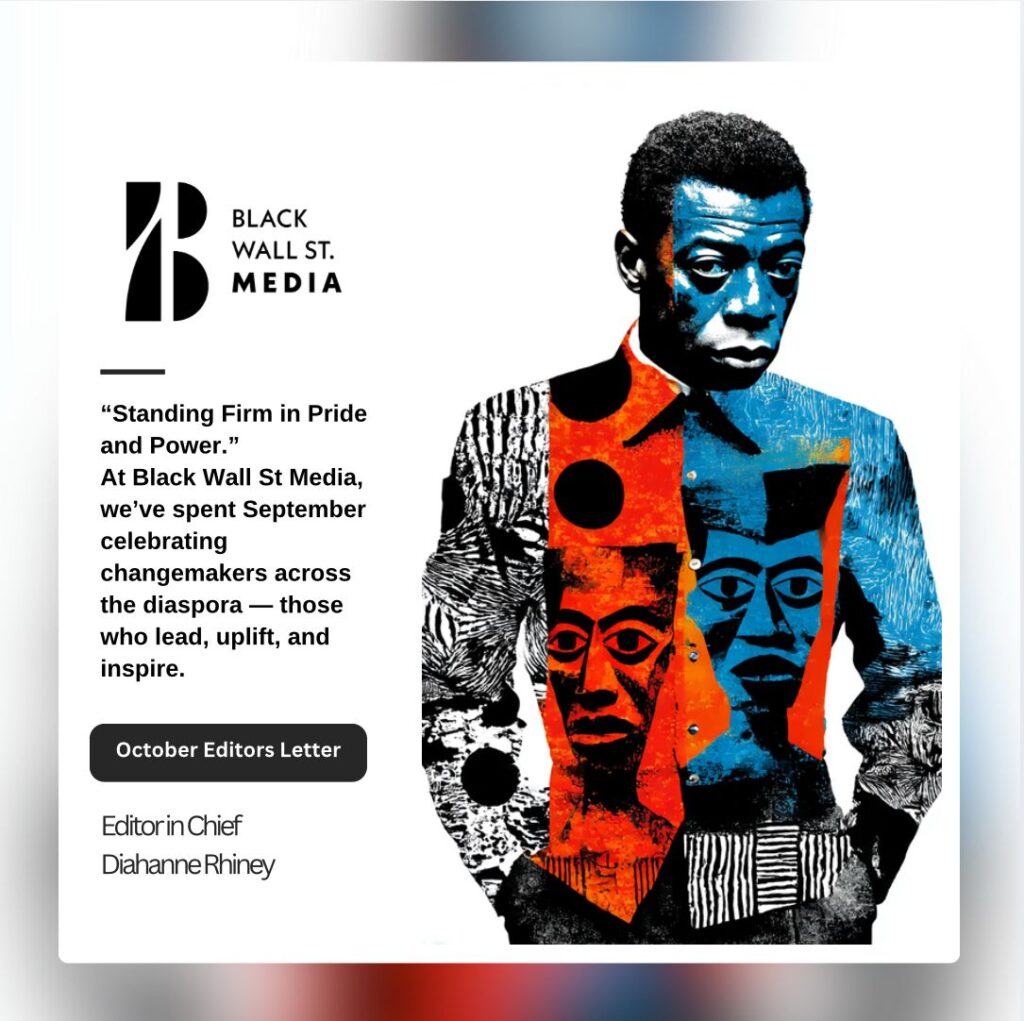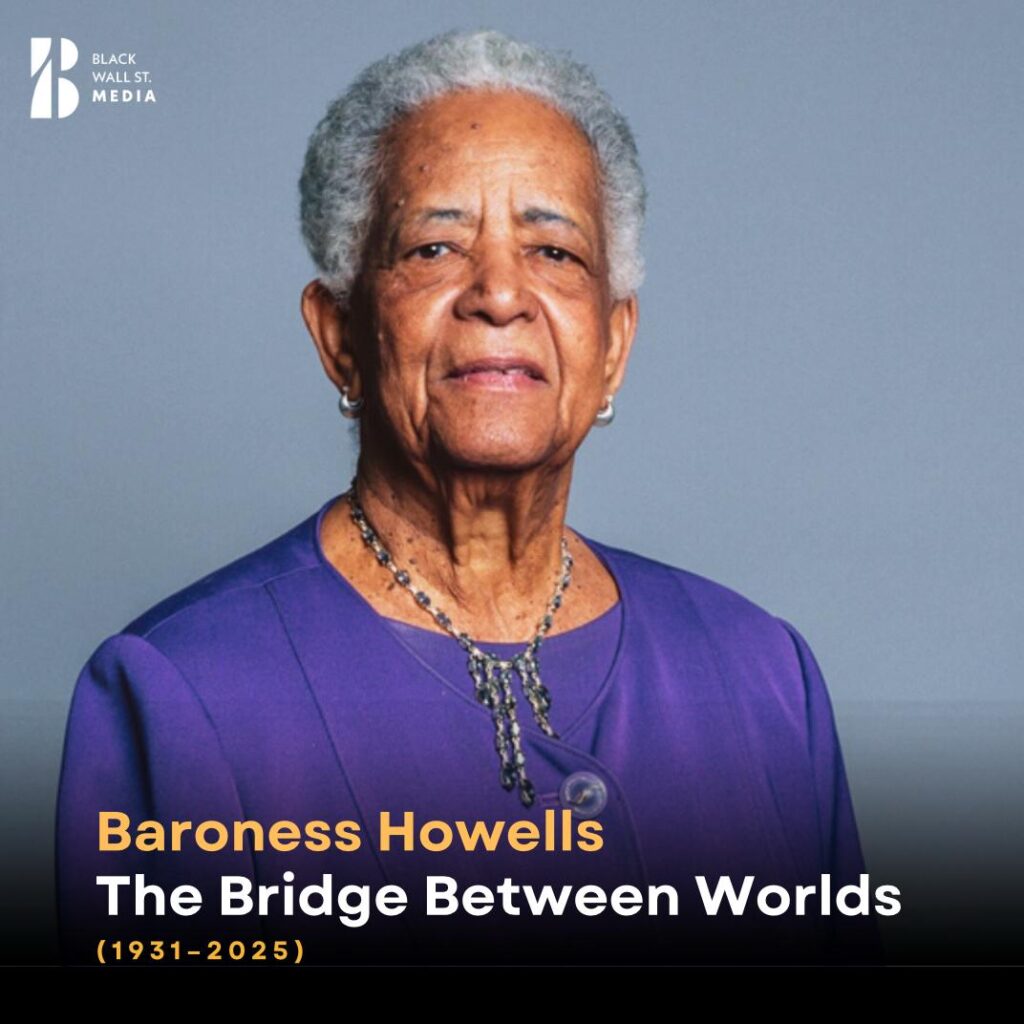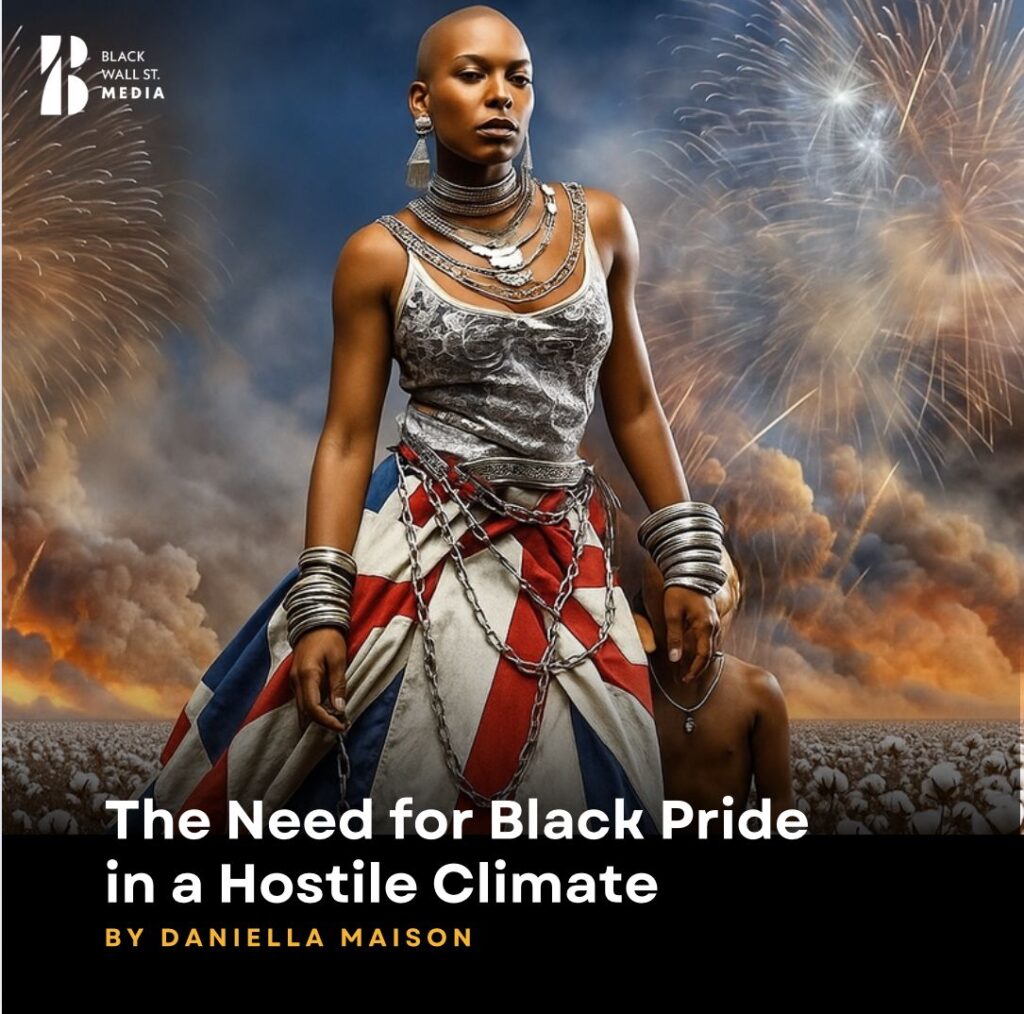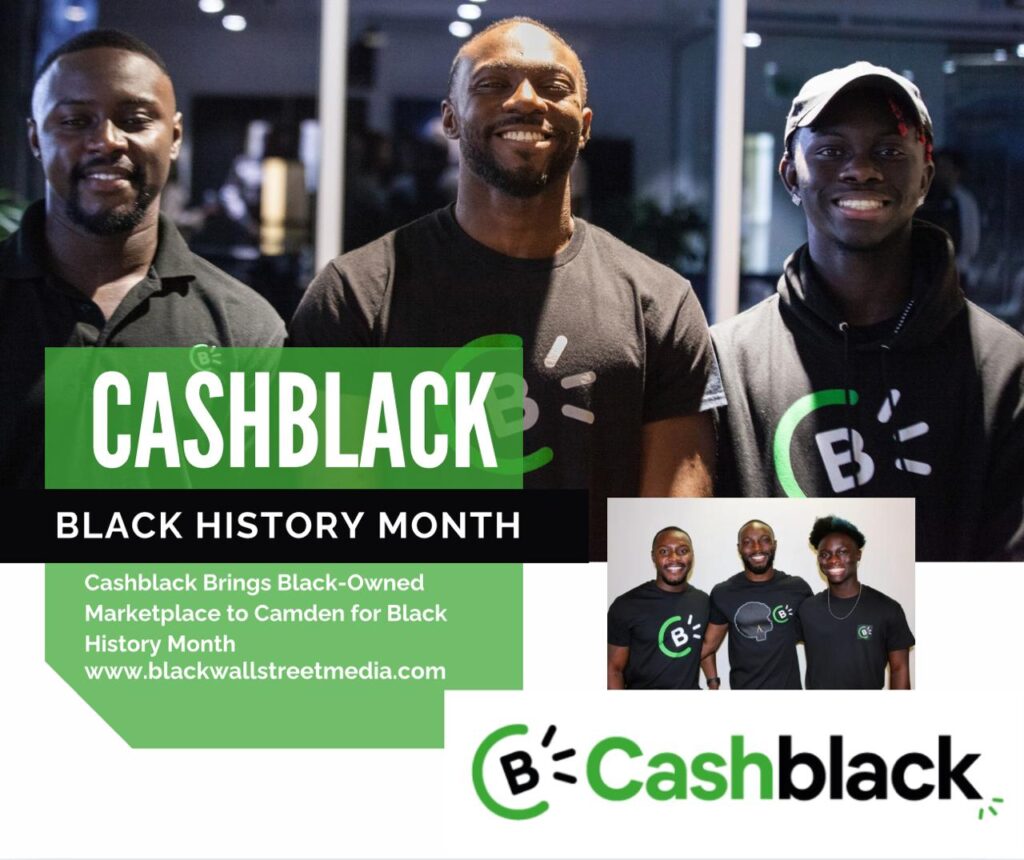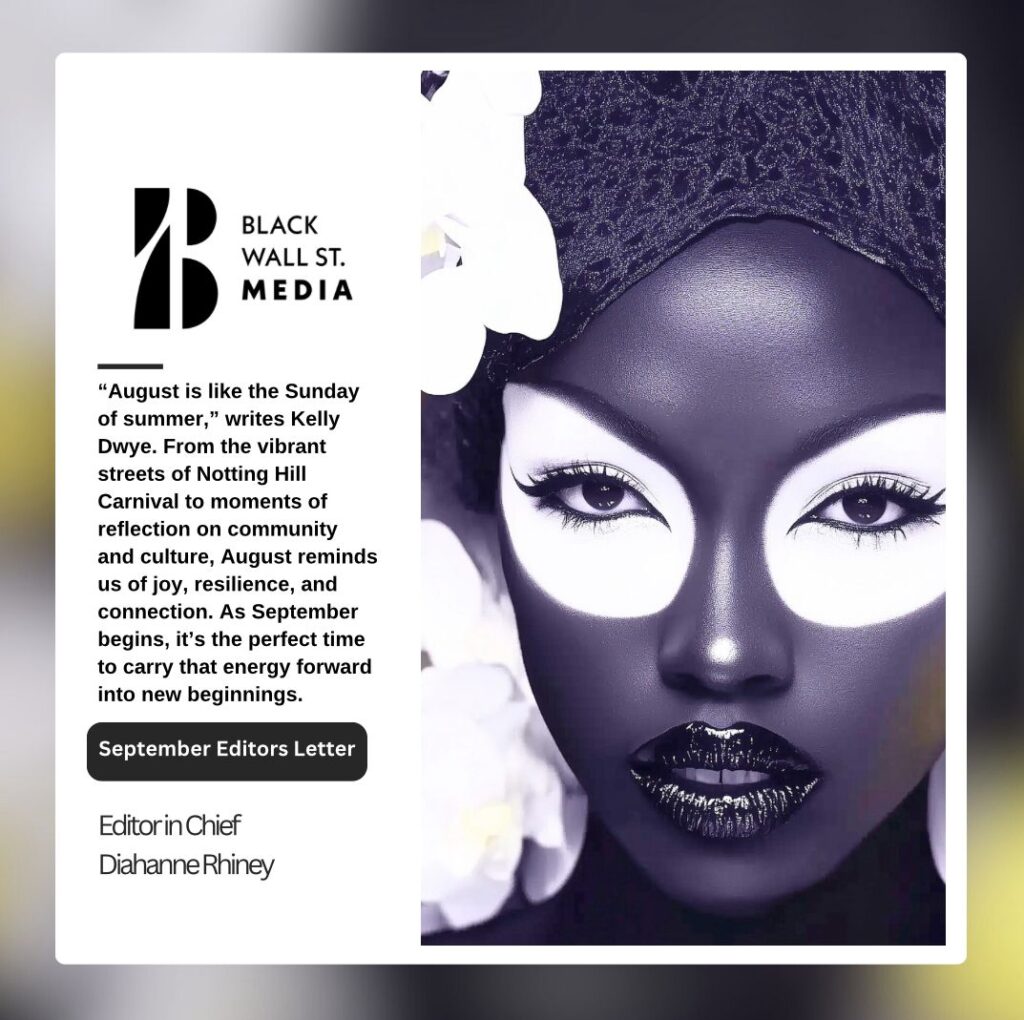EXCLUSIVE INTERVIEW
Photos courtesy of Cyril Aikins and Ayodeji Adeboyejo
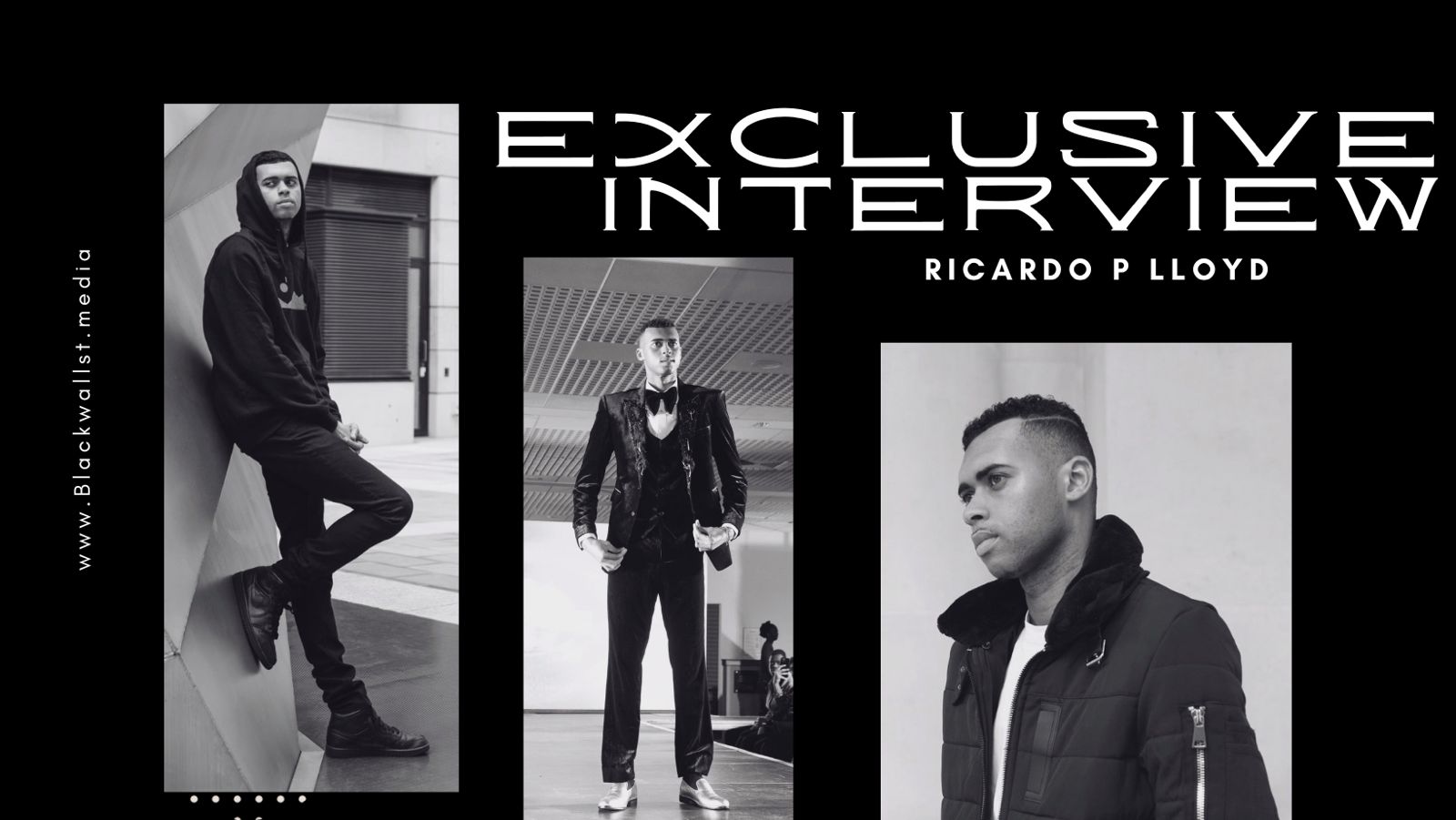
Entertainment News and Celebrity Interviews
“Explore the unseen impact of Ricardo's journey, the responsibility he feels, and the lessons he's learned. Understand the delicate balance between personal and professional life.”
Black Wall St. MediaContributor
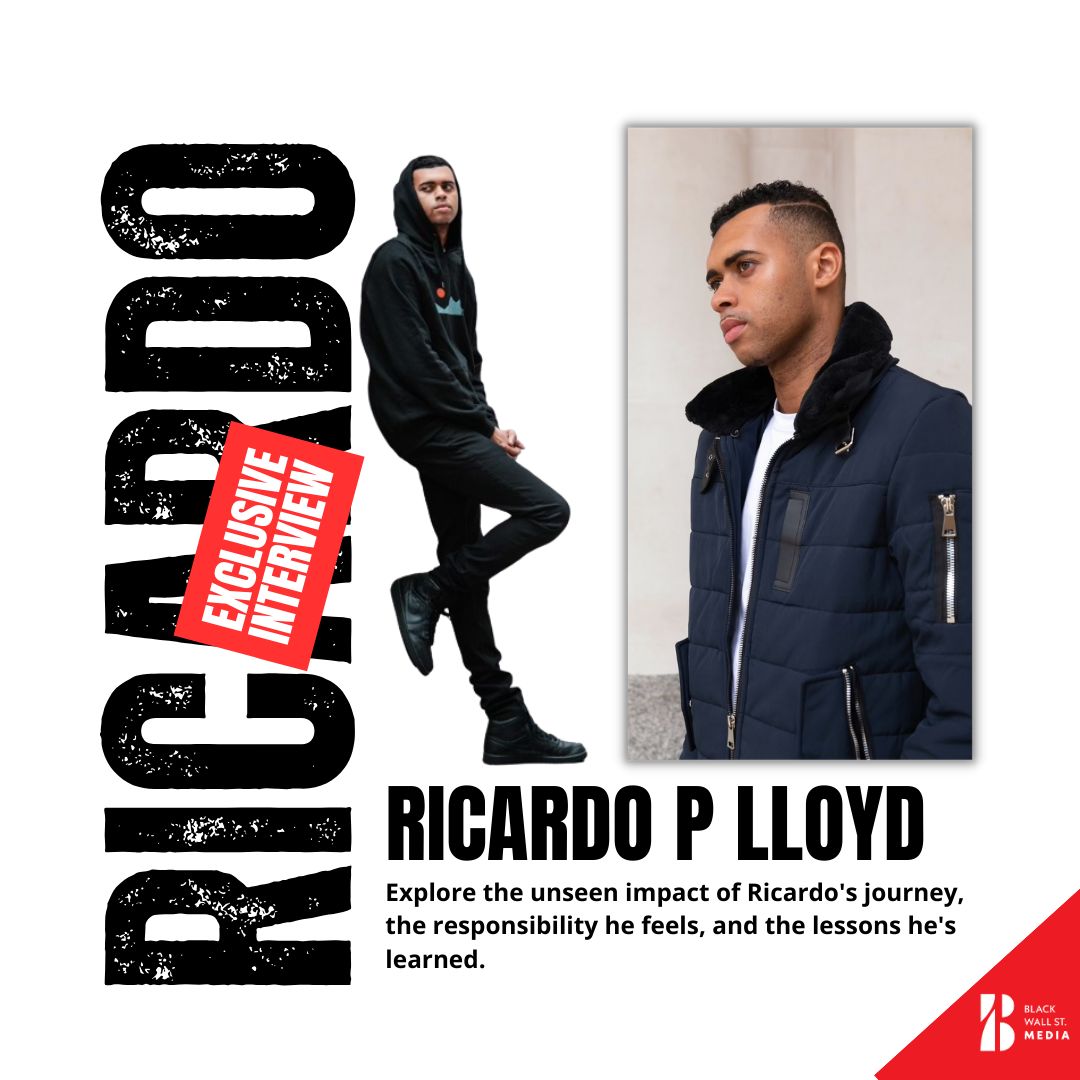
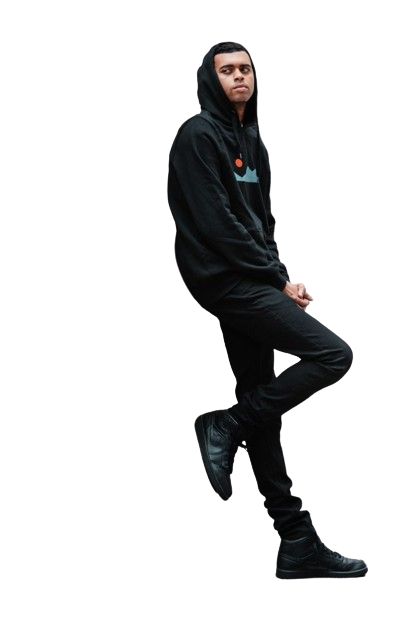
Exclusive Interview: Ricardo P Lloyd’s Inspiring Journey from Struggle to Stardom
In a captivating conversation with Black Wall St. Media, we delve into the extraordinary life and career of Ricardo P Lloyd, the British actor, presenter, and writer who has defied odds and stereotypes to emerge as a rising star in the entertainment industry. From his roots in Ipswich to the vibrant streets of London, Lloyd’s journey is a testament to resilience, determination, and a passion for the arts.
Our exclusive interview explores the early life and education that shaped Lloyd’s path, navigating challenges, and overcoming stereotypes. From a troubled period in his teenage years to a transformative educational journey, Lloyd’s story unfolds with twists and turns that ultimately lead to his pursuit of acting and the performing arts.
Recognition and awards have followed Lloyd, and our interview sheds light on the industry leaders who have mentored and supported him, including Hollywood luminaries Whoopi Goldberg. The interview delves into Lloyd’s activism, advocacy, and the pivotal role he plays in addressing social issues like class discrimination, social exclusion, racism, and diversity in the UK.
Beyond the spotlight, we explore Lloyd’s personal life, his faith, and the challenges he faced, including a period of homelessness. The interview captures moments of reflection, paying tribute to his idols like Sidney Poitier and Michael Jackson, and the influential role of drama classes in his personal and artistic development.
As Ricardo P Lloyd continues to thrive, reaching over 100,000 subscribers on his YouTube channel and receiving the YouTube Creator Award, our interview becomes a captivating narrative of perseverance, talent, and the transformative power of using one’s platform for positive change. Join us as we uncover the inspiring journey of Ricardo P Lloyd in this exclusive conversation with Black Wall St. Media.
BWSM – “Ricardo, could you share a bit about your family background and heritage, especially considering the generational shifts and experiences they encountered?”
RPL – My parents are essentially second-generation Brits. They were born here in the UK, whereas my grandparents hailed from Jamaica in the Caribbean. My mom is from St. Catharines, and I believe my dad’s roots are in a Clarendon in but I’m not entirely certain.
They’ve been settled here for quite a while. My maternal granddad, who arrived when he was around 17 or 18, had his share of experiences in the UK. Growing up, he faced the challenges of the era with signs that read “no dogs, no Irish, no blacks.” His early working life involved various factories, and he witnessed the transformations in job markets over time.
Reflecting on his life, one lesson I’ve gleaned from him is the importance of financial decisions. Despite facing adversities, he got married, although that didn’t last. His significant regret, as he shared with me, was not prioritising a house deposit over buying a car when he was younger. He eventually achieved homeownership, but the experience instilled in me the value of making strategic financial choices early on.
One aspect that stands out about him is his remarkable health, even in his 70s. He takes pride in having worked consistently since he was about 17. While I appreciate and listen to the values he upholds, I find that our generations differ. The emphasis on work, pension, house, and marriage as cultural traditions is something he values, but I don’t necessarily align with all of those ideals. This variance in our perspectives can sometimes lead to clashes, but I hold deep respect for his generation and the principles they hold dear.
Ultimately, we’re all unique individuals making different choices in life, so mutual respect is crucial. While he may not fully comprehend my role in the XO industry or my creative pursuits, I sense his pride in my accomplishments, especially considering my decision to attend university attaining two degrees including a masters.
I attained two degrees in performing arts film tv and stage and master of business administration degree.
However, there remains a complex array of factors to be navigated, helping people understand the nuances of being in a creative field and industry. I genuinely hope that, during his lifetime, he gets to witness my presence on TV or in films.
BWSM – What are some of the performances or roles you’ve had so far? Anything major that your family has had the chance to see?
RPL – No, there haven’t been any major roles yet. I’ve had some performances on shows like Sunday Morning Live, and there’s a short film where I played a pilot for the Royal Air Force.
I’ve dabbled in stage work, various performances here and there, but nothing major that he’s seen. For me, it’s crucial that, in their lifetime, they witness significant roles and the journey of their grandson or the family. Whether it’s going to LA or achieving the goals I’ve discussed, I want them to see it as something tangible.
BWSM – What’s your perspective on age when it comes to achieving significant milestones?
RPL – When considering achievements, I admire heroes like Michael Jackson who accomplished significant milestones before the age of 25. Thriller, the best-selling album of all time, was achieved by then. It’s not just about age; it’s about a person’s maturity, purpose, and journey. Age, for me, isn’t the defining factor; it’s the individual.
And I believe, some individuals, particularly in sports or entertainment, might struggle to handle success due to a lack of discipline or understanding of what true success entails.
My faith plays a pivotal role in keeping me grounded. Since my teenage years, I’ve been a strong believer in God, choosing to follow Christ, attending different churches, and building a foundation that provides me with a sense of self-identity.
While others may get caught up in their achievements, I remain focused on my purpose. This perspective helps me navigate setbacks, rejections, and missed opportunities, knowing that my purpose is significant, and I’m here to make a positive impact in the world.
It’s about the lives you touch and the broader community impact. My motivation for success is not just personal achievement but also the inspiration it can provide to others. I aim to create a lasting legacy that inspires people, showing them that despite challenges, it’s possible to overcome and achieve meaningful things.
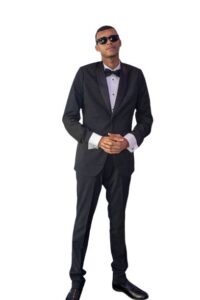
Ricardo P Lloyd’s Approach to Fame and Purpose
BWSM – How did you manage to amass such a significant following, with over 5 million people on Instagram? What has been the journey or strategy behind building such a substantial audience?
RPL – How I’ve cultivated such a substantial influence and audience is rooted in transparency.
Since the beginning of my professional career in 2019, I’ve been open about my journey, including challenges like homelessness. People feel connected because they’ve witnessed the highs and lows, making them part of the journey. I’ve consciously shifted my social media focus from negativity to impactful content.
While I’ve had opportunities to leverage my influence for endorsements, I prioritise the broader impact of my career over financial gains, choosing not to dilute my representation with brand endorsements.
This approach might mean missing out on certain opportunities, but there’s a bigger picture to everything I’m doing.
BWSM – Can you delve deeper into the decisions you’ve made and the treatment you’ve faced in the industry, especially considering your collaborations with major broadcasting institutions?
I’m interested in exploring your experiences, particularly regarding the challenge of not receiving due credit for the excellent work that black individuals, like yourself, often contribute. Can you share any specific instances or insights?
RPL – Certainly, I’ve encountered situations where my contributions, particularly behind the scenes, often go unrecognised.
There have been instances where I’ve collaborated on projects, played a significant role as a producer, but the credit wasn’t attributed to me.
It’s disheartening to witness industries not giving due recognition to black talent; there’s often a tendency to attach a more recognisable name or face to a project, sidelining the actual creators.
This issue of insufficient acknowledgment extends to broader systemic problems within the industry. While diversity and inclusion are frequently discussed, they sometimes seem more like token phrases used for corporate optics rather than genuine efforts to address ingrained issues.
I’ve made a conscious effort to speak out on these matters from the onset of my career, even during projects like “Excluded” in 2019, where I shed light on systematic challenges and biases.
As a young actor, I’ve chosen not to conform to the established norms of staying silent early in one’s career and only addressing issues later.
This approach, I believe, sets me apart and contributes to the influence I’ve garnered. Issues of diversity and inclusion are close to my heart, shaped by personal experiences, whether within the education system or the broader industry.
By being unafraid and unapologetic about my identity as a black man, I aim to be a catalyst for real change. It’s essential to challenge the status quo, inspiring others to join the cause. While I may not be certain of the personal impact I’ve had on others in the industry,
I’m confident that I’ve inspired many to speak up against injustices, despite the risk of it being perceived as a trend. My commitment to diversity and inclusion is not a fleeting project but stems from genuine care and personal experiences.
Is being a pioneer, breaking barriers, and opening doors for future generations a goal you passionately pursue?
Sylvester Stallone’s journey, as portrayed in the Netflix documentary, deeply resonated with me.
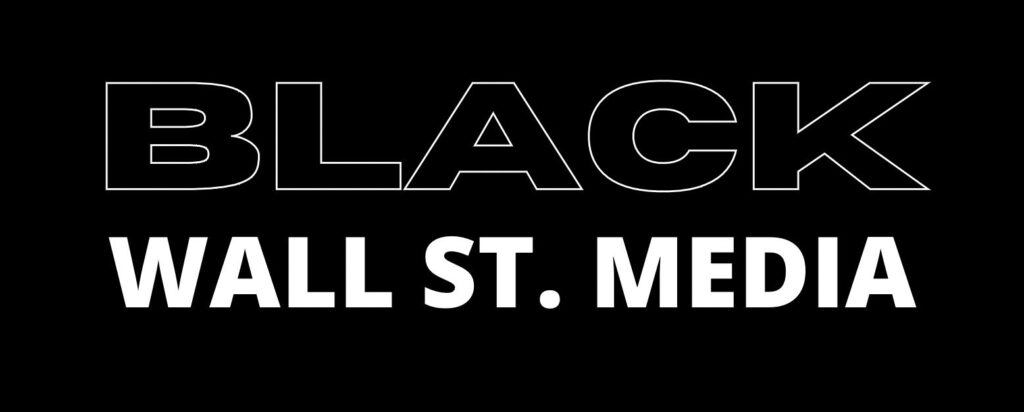
Despite his status as a white American, Stallone encountered significant hurdles within the industry, facing typecasting and exclusion from leading roles. His response was inspiring—he took charge of his destiny by writing, producing, directing, and creating a name for himself.
This narrative prompted me to contemplate the broader struggles faced by black individuals in the UK. The parallel isn’t merely racial; it extends to issues of class and various societal factors.
Examining stories like Stallone’s reveals that the challenges of proving oneself are not exclusive to race; they can stem from class disparities and other complex social factors.
As a black man, I can relate to the need to surpass these obstacles, particularly in the UK, where the limitations on black talent persist. The industry tends to spotlight a select few, such as Idris Elba or John Boyega, alongside emerging talents from productions like “Top Boy,” while overlooking a wealth of untapped potential from diverse backgrounds, including those emerging from drama schools.
What strikes me is the exodus of talent to the United States, where many black artists find the acknowledgment and opportunities that elude them in the UK. This pattern represents a significant loss for the UK, a country that contributes significantly to film, TV, stage, and entertainment globally.
While Americans look to the UK for creative inspiration, a metaphorical glass ceiling persists for black talents in the UK when it comes to accessing substantial roles and opportunities.
This dynamic raises questions about why the UK takes longer to embrace innovative storylines and diverse representation in comparison to its global counterparts.
BWSM – How do you perceive these challenges and opportunities for underrepresented talents in different entertainment industries, and what steps do you think can be taken to foster a more inclusive and equitable creative landscape?
RPL – It’s disheartening. I believe it boils down to a limited perspective, where some individuals here are confined within their own cultural bubble.
This lack of exposure hinders their imagination and perspective, preventing them from recognising the vast potential within the diverse talent pool around them. Contrastingly, Americans excel at spotting this potential.
For instance, the resurgence of “Top Boy” gained momentum through the involvement of Drake, a Canadian artist, showcasing their adeptness at recognising promising projects.
Lenny Henry’s transition into film production and direction adds another dimension to the evolving landscape. However, it raises questions about the extent to which individuals within the UK entertainment industry are willing to embrace and cultivate homegrown talent in similar roles.
BWSM – How do you perceive the role of international collaborations and influences in shaping the entertainment landscape, and what steps do you think should be taken to enhance opportunities for diverse talent within the UK?
RPL – My passion lies in narrating innovative stories that capture the diverse spectrum of human experiences, showcasing various shades and colours in our narratives. Unfortunately, the industry’s limitations have compelled me to consider the producer route, as these opportunities are not readily available.
It’s disheartening that, from a young age, my passion had to extend beyond acting, forcing me into multiple roles simply to occupy space within the industry.
The question arises: why must one take on every aspect to merely coexist in this space?
While producing, presenting, or writing wasn’t my initial focus, it became a necessity for survival and representation. The journey becomes a continuous cycle of reinvention, innovation, and adaptation to ensure one’s presence in an industry that can easily shut you out if you don’t conform.
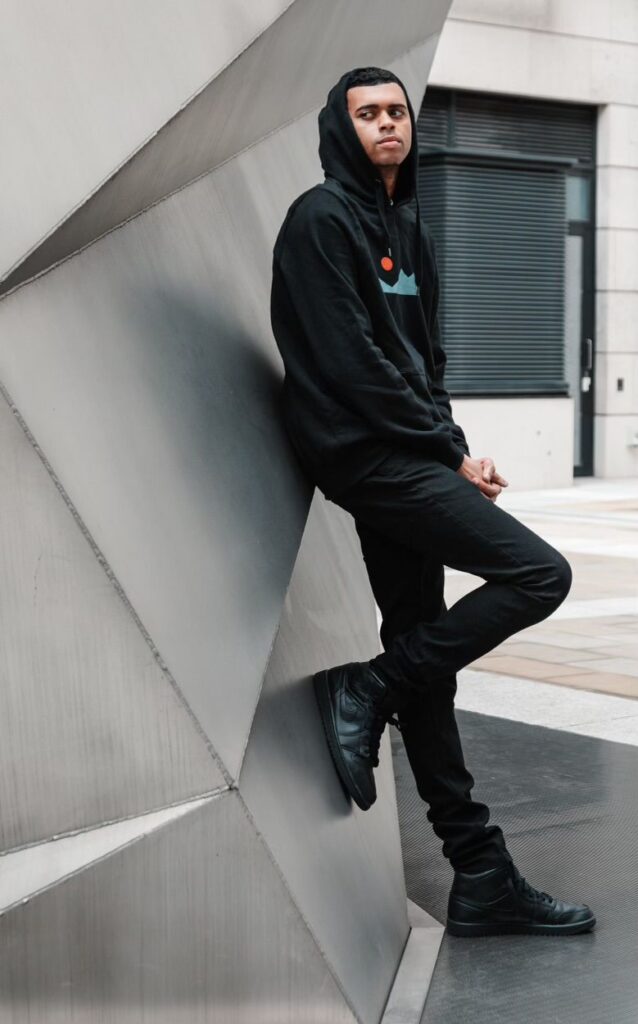
Navigating the Multifaceted Landscape of the Entertainment Industry:
BWSM – What are your thoughts on the industry’s demands for individuals to wear multiple hats, and how do you believe it impacts creativity and authentic storytelling?
RPL – Certainly, I believe the industry’s demands for individuals to wear multiple hats can be a double-edged sword. In my case, having an MBA and a strong business background has been a significant advantage.
Unlike many actors, I actively participated in production meetings during a stage show in 2019, collaborating with the artistic director and delving into promotional and marketing aspects.
This diverse involvement set me apart, emphasising the importance of understanding the business side of the industry.
Meeting Lenny Henry reinforced the significance of business skills in the entertainment industry. Unfortunately, many talented individuals, especially in the UK, aren’t encouraged to grasp the business mechanics.
It’s not just about being a talent; it’s about understanding the business infrastructure surrounding stardom. Monetising one’s talent and influence is crucial to avoid exploitation, as highlighted by instances of high-earning athletes facing financial challenges due to inadequate business knowledge.
My decision to pursue an MBA stemmed from the realisation that having business skills is essential for personal and professional growth in today’s business-centric environment.
While fame can bring immediate attention, sustaining a long-term career requires strategic planning, financial literacy, and a commitment to becoming an asset rather than a liability. This approach ensures not just short-term success but a lasting impact in the industry.
It’s interesting to note that, despite our age difference, I find myself learning a great deal from your insights into entrepreneurship and the business world. Your journey has been enlightening, and as an individual, you have a wealth of knowledge to share.
BWSM – How has your experience in entrepreneurship and the business world shaped your perspective, and what key lessons do you think are valuable for someone like me who is relatively new to this domain?
RPL – It’s quite intriguing to consider the presence of an invisible audience, individuals who observe your journey without your awareness. An incident at an awards ceremony exemplified this when a lady approached me, expressing her admiration and mentioning that she had been following my journey since 2019. This encounter, coupled with instances like receiving clips of someone in America acknowledging my presence in the UK, underscores the impact of this unseen audience.
These experiences highlight the need for intentionality and purposefulness in all actions. Understanding that people from various aspects of my life, including school days and my local community, are following my journey fosters a sense of responsibility.
Being mindful of my role as an uncle to my niece and nephew adds another layer, considering the potential long-term impact on them. Balancing being a family member, friend, and someone from a particular background requires a conscious awareness that guides decision-making, ensuring choices are effective and considerate, rather than driven by selfish or impulsive motives.
BWSM – Do you find that sharing your journey, engaging in interviews, and various interactions contribute significantly to your overall impact and influence?
RPL – I’ve been a part of numerous interviews, spanning various platforms such as Premiere Gospel, BBC Radio London, and even featured in a Jamaican newspaper.
It’s remarkable how far the impact of your story can reach. While I understand the importance of exposure, I believe in maintaining a balance and being selective about interviews. In today’s age of excessive exposure, I find that less is more.
It’s not about constantly updating followers on trivial aspects of life but rather sharing meaningful and impactful content that can inspire, encourage, empower, or educate. I see many individuals chasing likes and hearts, often attending events solely for the sake of a post. I’m deliberate in my approach, ensuring that what I share serves a purpose and aligns with my mission.
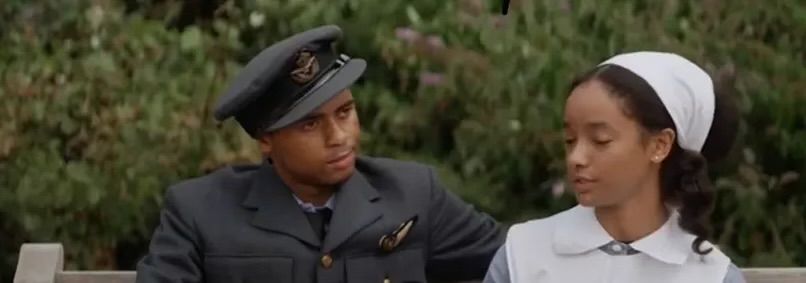
BWSM – Looking back on your career, can you pinpoint a moment that significantly propelled you into the limelight? And if so, was there a particular moment that stands out as the most enjoyable for you?
RPL – It’s hard to pinpoint a single moment because there have been many impactful ones. Recently, being invited by Michael Jackson’s team to his musical launch was surreal, considering he was someone I grew up idolising. Moments like private breakfasts with stars and speaking with Whoopi Goldberg on the phone stand out.
Being on the front cover of The Guardian in 2021 and seeing the influence I have, especially coming from northwest London, is beyond me.
Some peers pursued success and fame, but I believe the difference is chasing purpose over fleeting achievements.
It’s about finding your essence, standing in your purpose, and contributing meaningfully, creating a lasting impact. The people who inspire me aren’t just talented; they tapped into their unique essence and resilience. What I’d like to convey to young people is to focus on meaningful pursuits and establish their purpose, as opposed to chasing transient success.
As I reflect on my journey, the reason behind my influence and impact is often overlooked. It’s not just surface-level success; it’s the depth, the essence beyond the visible.
While there might be actresses in major films, they might lack the depth that resonates. It goes beyond personal beliefs; it’s about tapping into a profound sense of purpose.
This depth, understanding of oneself, and clarity of purpose are crucial in acting, enabling one to reach a place few can explore. My journey includes numerous rejections, instances where big shows slipped away at the last moment. Yet, I don’t see it as rejection; it’s redirection.
Perhaps, these setbacks were necessary for me to become the person I am today. It’s like fine-tuning, adjusting, and tuning again until you hit the right note. What people may not grasp is that being in the entertainment industry, especially as an actor or artist, involves navigating through these intricacies.
Navigating this industry has been challenging; I’ve taken on various jobs, often unrelated to my craft, just to make ends meet and survive. It’s crucial to see the bigger picture beyond the glitz and glamour associated with the entertainment world.
Personally, I’ve worked in schools, supporting young children with special needs. It’s a stark contrast between a nine-to-five job at a school and walking the red carpet at events. This duality is the reality for many actors, dealing with the unseen challenges behind the scenes.
The sacrifices made in my journey are significant. Whether turning down roles or facing rejection, it stems from a care for proper representation and a reluctance to contribute to harmful stereotypes.
The impact of on-screen work is lasting, existing in the canon for years. Rejecting stereotypical roles, despite their potential for immediate success, is a deliberate choice.
Looking ahead, I consider the long term, aiming for a sustainable and impactful career, distinct from short-lived fame. This approach, coupled with business acumen, conscious awareness, and valuable connections, has shaped my journey.
In these Hollywood circles, surrounded by Oscar-winning individuals, I find myself in a learning environment, almost like a game of chess. Observing the decisions others make, I play out scenarios in my mind, thinking, “If I make this choice, what would be the outcome?”
It’s a strategic approach, making calculated decisions to shape my path. Despite being an introvert by nature, I know how to project an extroverted persona when necessary.
There’s a certain art to turning it on, especially in the industry’s social settings. I’m reflective, enjoy reading, studying, and analysing – a constant absorption of knowledge. It’s intriguing how people might perceive me, not realising the depth of intelligence that goes into crafting a role when given the opportunity.
BWSM – How have your experiences growing up in disenfranchised environments shaped your character, and do you feel that your ability to adapt to different groups has contributed to your influence and career in the entertainment industry?
Also, what kinds of roles do you aspire to play, considering your desire to represent the entire spectrum of humanity?
RPL – Being in disenfranchised environments has taught me a lot, shaping my character and providing valuable training for navigating real life and the industry. Growing up, I’ve been the center of attention, not fitting into popular groups but drawing the focus of both cool kids and nerds.
This ability to adapt to various environments, from interacting with different generations to engaging with CEOs and royalty, has been crucial in shaping my influence. I’ve matured into understanding how my past experiences contribute to who I am today.
As for roles, I aspire to play characters that inspire, empower, evoke emotions, or offer valuable lessons, aiming to represent the diverse spectrum of humanity rather than conforming to stereotypes or negative portrayals.
As an actor and performer, I aim to portray not just the extremes but also the nuances, the shades of grey, and the complexities of characters. I draw inspiration from iconic artists like Bob Marley, Michael Jackson, and Tupac, who skilfully infused character into their music, creating a rich and authentic experience for the audience.
Sidney Poitier is one of my favourite actors because his roles are rich in character, transcending stereotypes.
Whether he plays a teacher, lawyer, or doctor, you can see the depth and contrast in his characters, representing humanity beyond racial labels. Watching him in “To Sir, with Love” yesterday reminded me of his versatility.
I appreciate how he steps into roles not necessarily written for a black man, yet carries the powerful presence of his identity on screen. Similar to Muhammad Ali and Bob Marley, Poitier understands the impact he can have in the limelight, staying true to himself both on and off-screen.
Their authenticity and consciousness make them timeless icons.
BWSM – Have you ever played a role that resonated with you personally, perhaps portraying an unsung hero or a character you deeply connected with?
RPL – Those are the roles, like Johnny Smith, that I wish I could have delved deeper into. I had the opportunity to meet his son, who’s a great guy, but I feel I could have done more justice to the portrayal.
After a BBC documentary, they approached me for the project, but sometimes you need the space to recuperate before diving into new endeavour’s. While I don’t have regrets, there’s a part of me that wishes I had more time and focus on fully embodying those roles.
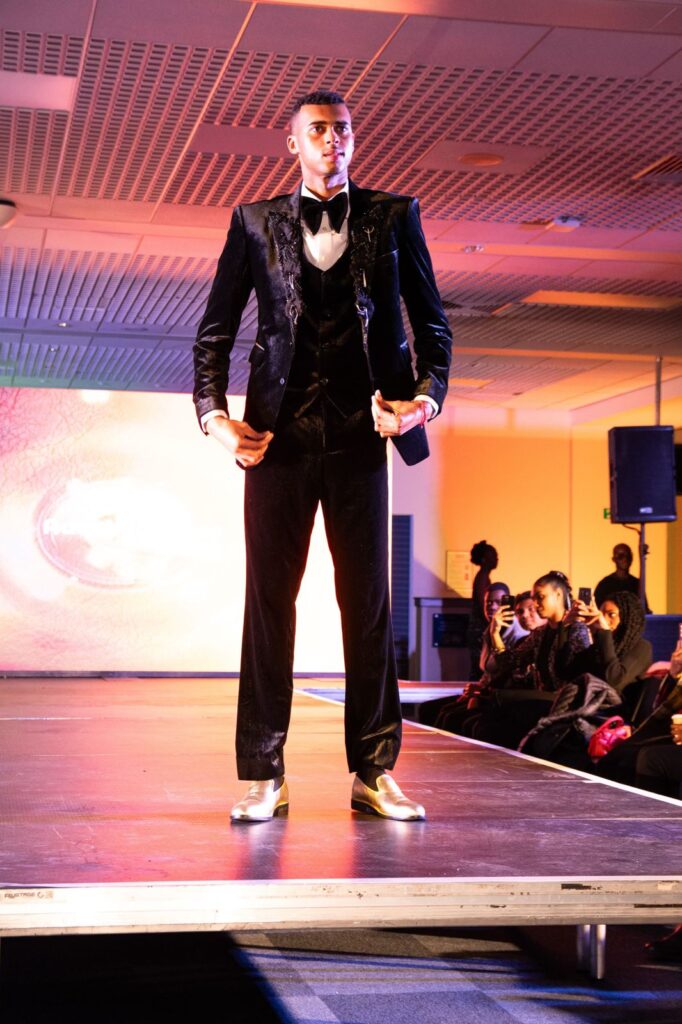
BWSM – How do you respond to the notion that British actors are taking roles away from American actors?
RPL – It’s about being an actor and choosing roles that are right for the part, not about taking someone else’s spot.
When Black British actors go to the USA, it’s often because we see a larger market and more opportunities to tell diverse stories. We understand the struggles, not just in America but globally, as part of the diaspora.
The idea of British actors taking over might stem from ignorance or a lack of understanding. Has this person been to the UK, seen our talent, experienced our drama schools, or understood our struggles?
The experiences may differ in detail but share a common thread of internal conflicts and pain.
As an actor, it’s about portraying different roles, not a race or nationality takeover. Some actors may lack the craftsmanship developed through stage work and extensive training, focusing more on showmanship.
The importance of stage work, as seen in Viola Davis or Denzel Washington’s careers, is often overlooked by those who haven’t had that experience.
The Ongoing Journey of Community Building and Personal Branding in the Entertainment Industry
RPL – You need to find a community, establish connections with people – it’s an ongoing process, even in the various places I’ve been. I consistently promote myself, not just as an actor with a brand, but because it extends beyond individual projects. It’s about making an impact and building relationships.
A common mistake some individuals make is thinking their involvement in a project, being on a pitch, or participating in a movie is the endpoint. It’s more than that; it’s about how you engage with others in the room. Are you courteous to the waiter, or do you treat them disrespectfully, along with those in lower positions?
True colours emerge, revealing your real essence. It’s all part of your branding. People form opinions based on these interactions. If you’re perceived negatively, you risk losing your entire fan base, as individuals connect with others’ experiences.
BWSM – Couldn’t agree more. It’s a message that resonates across all walks of life. We are our brand, and treating everyone with respect is essential. Regardless of one’s perceived status, we should remember the impact our actions can have on others.
RPL – Precisely. It’s about service, humility, and recognising that titles and positions should not overshadow our shared humanity. Let’s strive for a culture where respect is mutual, and success is collective.
BWSM – Thank you for sharing these insights, Ricardo. It’s been a pleasure to learn from your experiences and perspectives.
RPL – Thank you for the interview. I hope it inspires positive and productive change in how people approach their careers and interactions.
Black Wall St. MediaContributor

